A Guide to Invoice Consolidation
Combine multiple charges into a single invoice
This guide covers everything you need to know about invoice consolidation in Upmind, from enabling the feature to managing payment methods. Here’s what you should know about our consolidation system:
- Invoice consolidation only applies to renewal invoices.
- If consolidation is enabled after there are existing unpaid renewal invoices, those invoices will not be automatically consolidated.
Enabling invoice consolidation
- Go to Settings > Order Options under Ecommerce Settings.
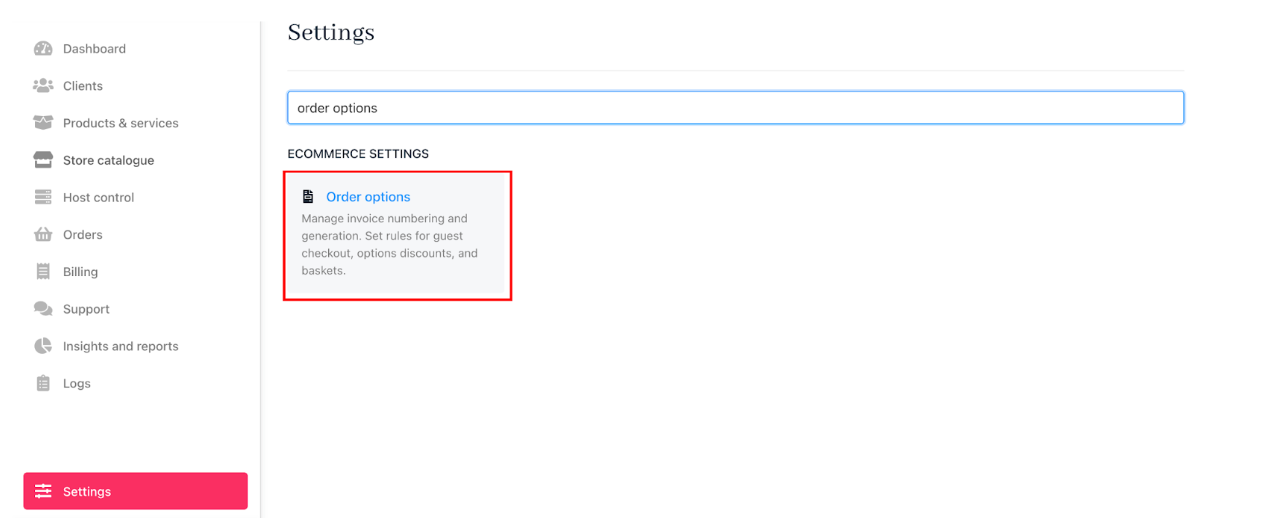
Settings > Order options
- Scroll to the
Consolidationsection and check the box to enable. - Restrict consolidation management to staff only. (Optional)

Invoice consolidation
To restrict consolidation access to staff only, check the Allow only staff using that feature box, preventing clients from using it directly.
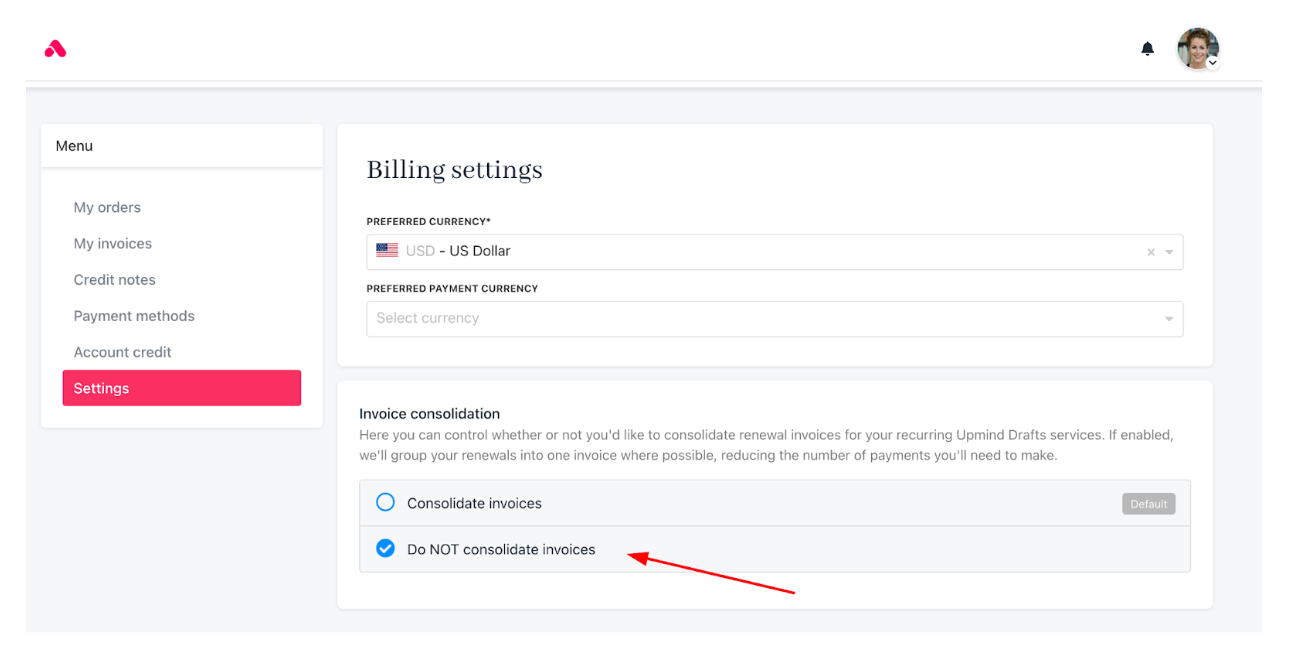
No consolidation
When allow only staff users is enabled for invoice consolidation, clients must submit a ticket to request consolidation through their account
Invoice consolidation timing options
Invoice consolidation groups multiple invoices into one based on specific rules. Importantly, consolidation is based on the next invoice date, not the due date.
- Consolidation Rules: You can define how invoices are consolidated using these options:
- Consolidate on a selected date each month: Choose a date (e.g., the 15th), and the system consolidates invoices from that date up to the day before the same date next month.
- Consolidate on the first day of the month: On the 1st of each month, the system consolidates invoices for the entire upcoming month.
- Consolidate on the last day of the month: On the last day of each month, the system consolidates all invoices with next_invoice_dates in the following month, excluding the last day itself.
- Consolidate on a selected day of the week: On a specified weekday (e.g., Monday), the system consolidates invoices for the entire current week, from that day through the week’s end.
- Consolidate invoices issued on the same day: The system consolidates all invoices scheduled to be issued on the same day.

Consolidation rule
- Consolidation Rule – Date of Month: This option lets you specify the day of the month when invoices are consolidated, such as the 1st, 15th, or last day, depending on your billing cycles and business needs.

Consolidation rule – Date of month
- Consolidation Rule – Day of Week: This option sets the specific day of the week (e.g., Monday, Tuesday) on which invoices should be consolidated.

Consolidation rule – Day of week
- Due Date Interval for Consolidated Invoices: The due date of the consolidated invoice is set a specified number of days (e.g., 7 days) before the next_invoice_date of the earliest product or service date among the consolidated invoices.

Due date interval for consolidated invoices
Upmind's billing terms are fixed to monthly, quarterly, semi-annual, or annual cycles, so partial-month charges require manual handling by adjusting the contract or product renewal date. You can change the renewal date of a subscription or modify a subscription contract.
Client overrides and product exclusions
Clients can manage their own consolidation rules unless restricted (if you do not check the option Allow only staff using that feature).
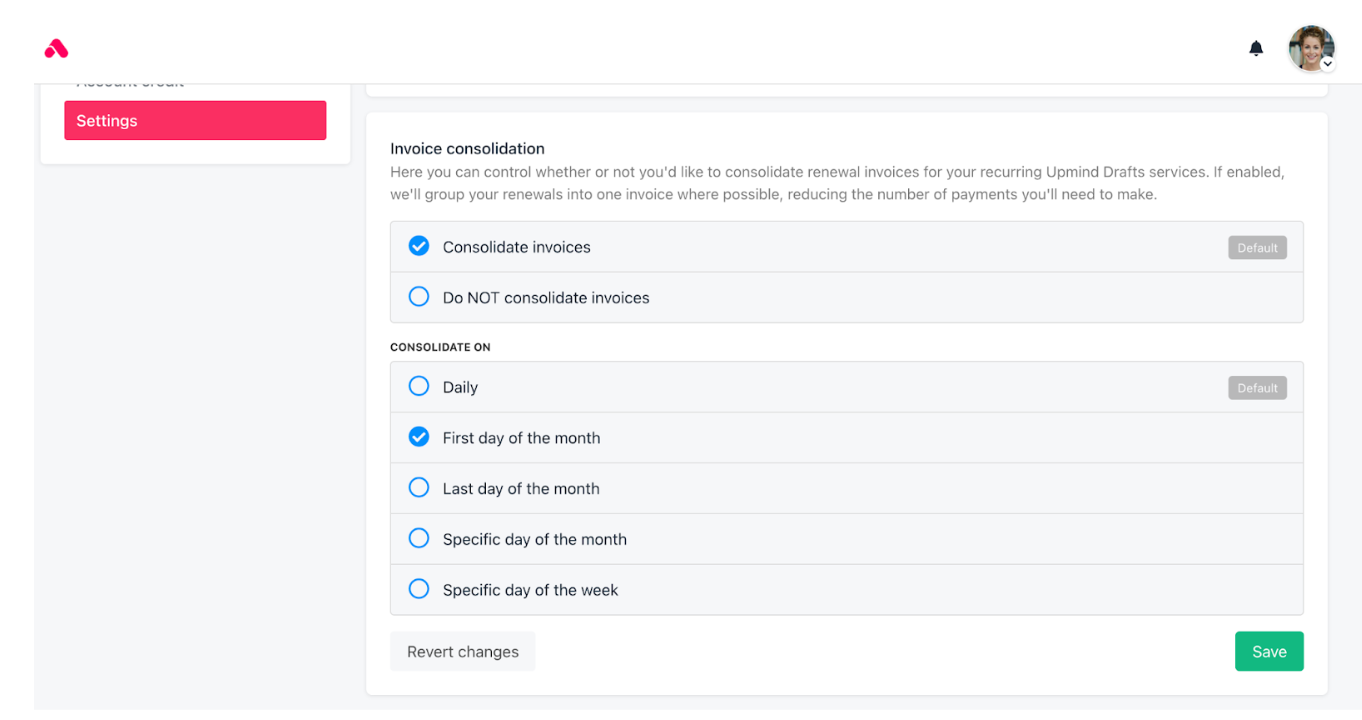
Billing > Settings
Client-managed consolidation
Clients can exclude specific products from invoice consolidation:
- Navigate to
Products and Services. - Select the product to exclude.
- Go to the
Billingtab. - Find Invoice Consolidation and change it to Exclude invoice when consolidating.
- Click Save.
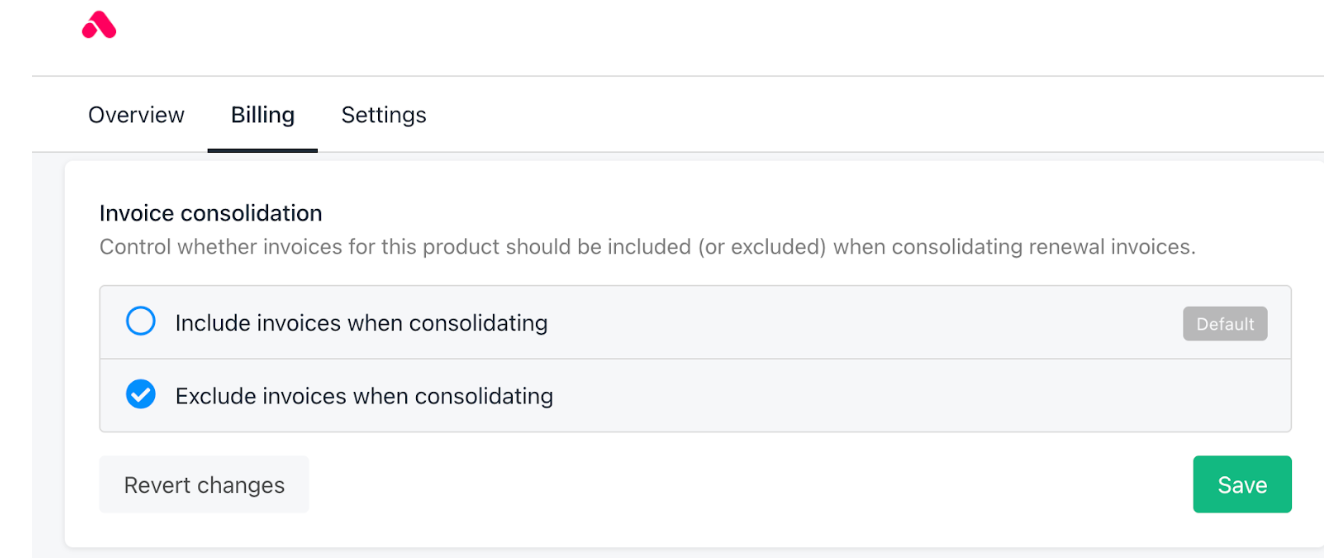
Products and services > Billing
Admin-managed consolidation
If only admins manage consolidation, you can handle client requests individually.
- To exclude a product from consolidation for a client:
- Go to
Products & Servicesin the client profile. - Select the product.
- Click Settings.
- Choose Exclude invoices when consolidating.

Products and services > Settings
- To exclude a client entirely from invoice consolidation:
- Go to
Settingsin the client profile. - Click Billing.
- Select Do not consolidate invoices.
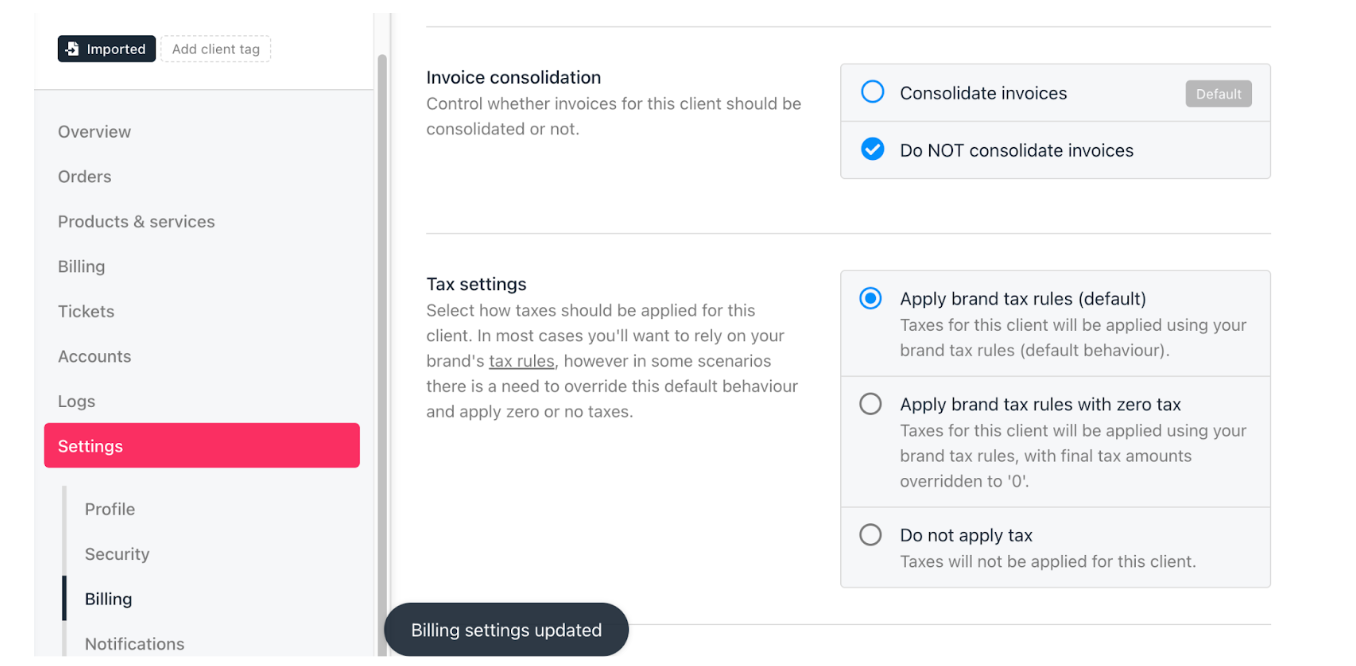
Settings > Billing
- To exclude a specific product from all consolidated invoices:
- Go to
Products & Services. - Click Product Automation.
- Select Exclude from invoice consolidation.

Products and services > Product automation
When invoices are consolidated automatically
Invoices consolidate automatically when multiple subscriptions for the same customer renew within a specific time frame, allowing all charges to be combined into a single invoice for easier payment and clearer billing.
Invoices are consolidated based on the following criteria:
- Client
- Client address or company details
- Currency
Examples:
- Same Client with Different Currencies: If a client has services billed in different currencies (e.g., one in USD and another in EUR), they will receive separate invoices for each currency.
- Same Client with Different Addresses: If a client has services at different addresses with varying currencies (e.g., a UK address billed in GBP, another UK address billed in EUR, and a DE address billed in EUR), invoices are issued as follows:
- One invoice in GBP for the UK address.
- Two separate invoices in EUR, one for each address (UK and DE).
Payment methods on consolidation
When a client has a default payment method saved in their client area, Upmind uses this method during consolidation, ignoring any payment methods set for individual services.
Updated 3 months ago